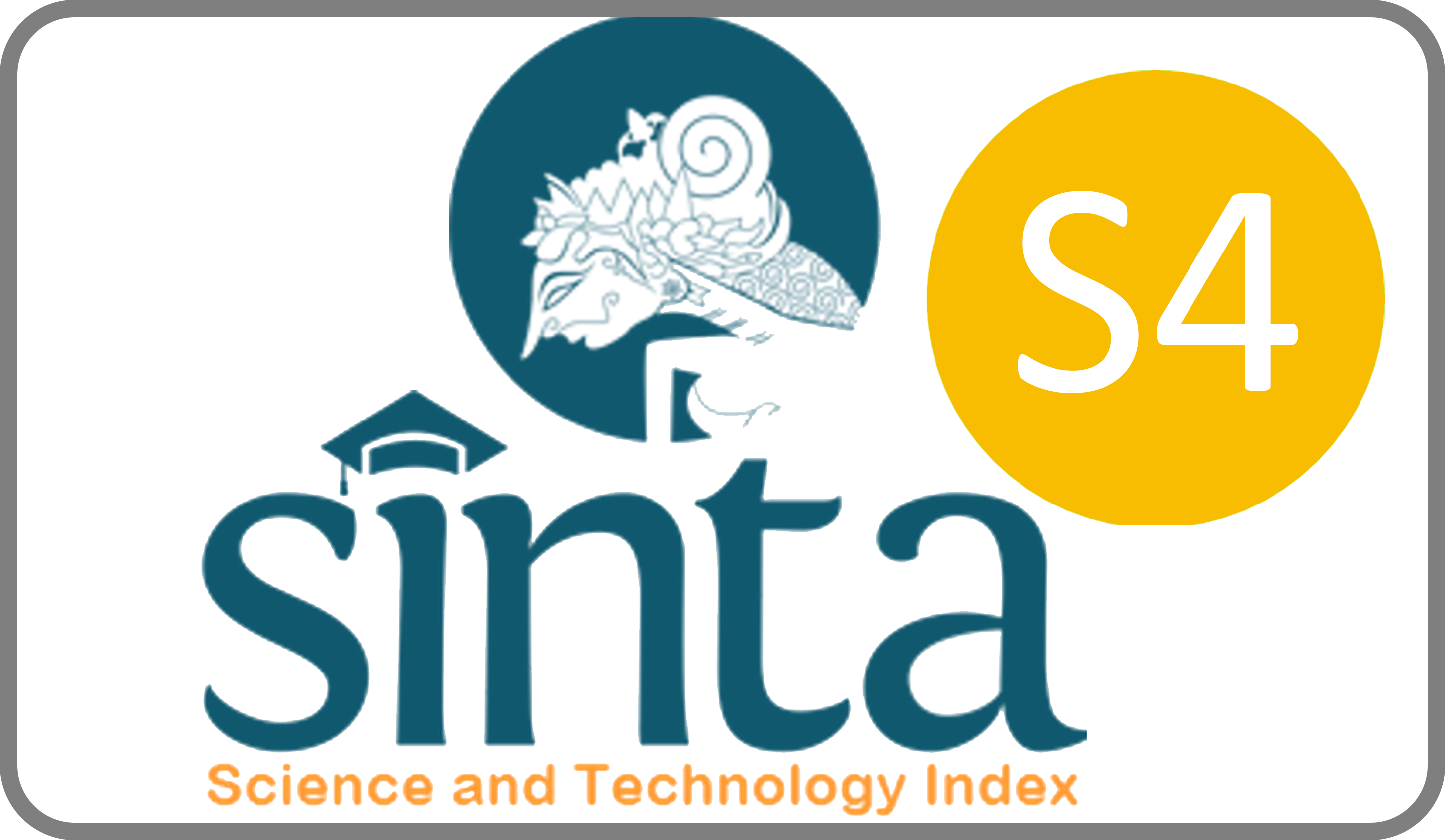CALIFORNIA MASTITIS TEST AND IDENTIFICATION OF ANTIBIOTIC-RESISTANT BACTERIA ON DAIRY CATTLE IN "KUD” SEMEN GANDUSARI SUBDISTRICT, BLITAR
Downloads
Mastitis is an inflammation of the udder that often affects dairy cows in the production phase. The impact of mastitis losses is quite large, including a drastic decrease in milk quantity and quality. Mastitis can be caused by antibiotic-resistant bacteria in dairy cows, including Escherichia coli, Staphylococcus spp or Streptococcus spp. The results of a recent study stated that the prevalence of mastitis in Indonesia reached 83%. The Coliform Mastitis Test (CMT), used worldwide for early detection of mastitis, has a specificity of 80.6% and a sensitivity of 82.4%. Semen Village Unit Cooperative (KUD) is a cooperative that is the center of milk production in Blitar District, which accommodates the milk of dairy cows from smallholder farms in Blitar District. The high incidence of mastitis caused by the presence of bacteria resistant to antibiotics encourages counseling on mastitis and identifying bacteria that cause antibiotic resistance. Extension activities are carried out by presenting material about mastitis caused by the presence of bacteria resistant to antibiotics with lecture techniques (PowerPoint slides), videos, questions, and answers, and demonstrating the California Mastitis Test on milk samples as an early detection test, as well as identifying bacteria that cause antibiotic resistance. This series of counseling activities is an effort to reduce the incidence of mastitis through increased knowledge and understanding of the community.
BPS Kab Blitar. 2021. Kabupaten Blitar dalam Angka. Katalog Kabupaten Blitar 1102001.3505.
BPS Kab Blitarb. 2021. Kecamatan Gandusari dalam Angka. Katalog Kabupaten Blitar 110/2002.3505150.
Hassuna, N.A., Khairalla, A.S., Farahat, E.M., Hammad, A.M., Abdel-Fattah, M. 2020. Molecular characterization of extended-spectrum lactamase –producing E coli recovered from community-acquired urinary track infections in upper, Egypt. Sci. Rep/10 : 1-8.
Kamaruzzaman, E.A., Saleha, A.A., Zakaria, Z, and Hassan L. 2020. Occurrence and characteristics of extended-spectrum beta lactamase producing Escherichia coli from dairy cattle, milk and farm environment in Peninsular Malaysia. Pathogens 9 (12); 1007.
Marogna G., Rolesu S., Lollai S., Tola S., Leori G. 2010. Clinical findings in sheep farms affected by recurrent bacterial mastitis. Small Ruminant Research 88, 119-125.
Nurhayati, I.S., Martindah E. Controlling subclinical mastitis by antibiotic application during dry period of dairy cow. Indones. Bull. Anim. Vet. Sci. 2015;25(2):65–74
Peraturan Menteri Pertanian. 2017. Penyediaan dan Peredaran Susu. Menteri Pertanian Republik Indonesia.
Royster E, Wagner S. Treatment of mastitis in cattle. Vet. Clin. North Am. Food Anim. Pract. 2015;31(1):17–46
Sudarwanto, M., Latif, H. and Noordin, M. 2006, July. The relationship of the somatic cell counting to sub-clinical mastitis and to improve milk quality. In 1st International AAVS Scientific Conference. Jakarta.
Setiawan, J., Maheswari, R.R.A., dan Purwanto, B.P. 2013. Sifat Fisik dan Kimia, Jumlah Sel Somatik dan Kualitas Mikrobiologis Susu Kambing Peranakan Ettawa. ACTA veterinaria indonesiana-indonesian veterinary journal 1(1), 32-43.
Shearer J.K and Harris Jr.B. 2003. Mastitis in dairy goats. IFAS Extension. University of Florida. USA.
Copyright (c) 2024 Jola Rahmahani, Yulianna Puspitasari, Suwarno

This work is licensed under a Creative Commons Attribution-ShareAlike 4.0 International License.
JLM by Unair is licensed under a Creative Commons Attribution-ShareAlike 4.0 International License.
1. The journal allows the author to hold the copyright of the article without restrictions.
2. The journal allows the author(s) to retain publishing rights without restrictions
3. The legal formal aspect of journal publication accessibility refers to Creative Commons Attribution Share-Alike (CC BY-SA).
4. The Creative Commons Attribution Share-Alike (CC BY-SA) license allows re-distribution and re-use of a licensed work on the conditions that the creator is appropriately credited and that any derivative work is made available under "the same, similar or a compatible license”. Other than the conditions mentioned above, the editorial board is not responsible for copyright violation.


















